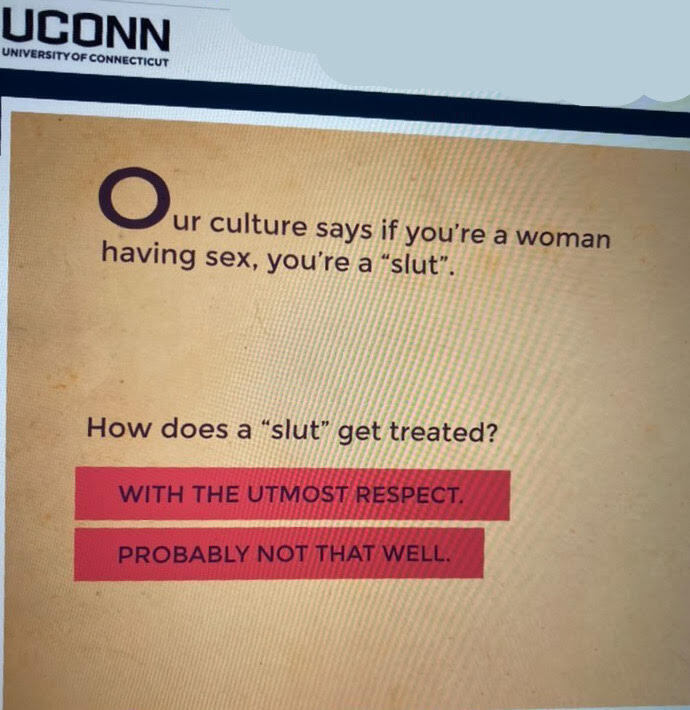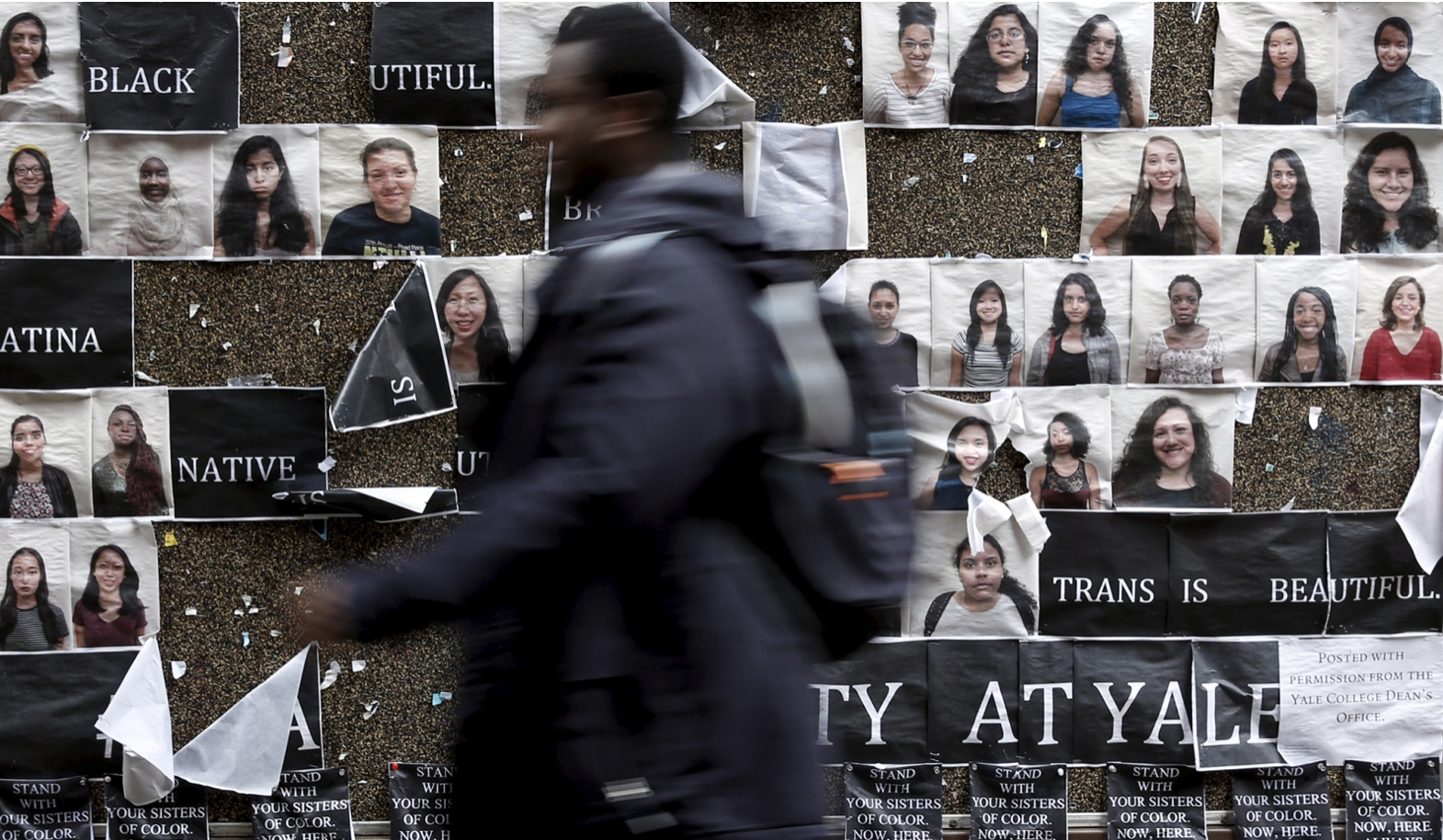By: Aaron Ravin – nationalreview.com – April 3, 2022
Diversity, Equity, and Inclusion. These three words are now the holy trinity of woke activists seeking to impose their ideology on institutions across the country. It’s worst at — though by no means exclusive to — universities. Ever since DEI-inspired protests at the University of Missouri caused that school’s president to resign in 2015 despite an absence of any wrongdoing, raging students, working hand-in-hand with activist administrators and sympathetic faculty members, have only grown more ambitious. Just this past November, at Coastal Carolina University, Steven Earnest was, at the behest of the school’s DEI committee, temporarily removed from teaching duties for uttering the following heresy (***Content Warning***): “I’m just sad people get their feelings hurt so easily.”
Based on such stories, it’s easy to assume that university administrators have lost their minds. The now-commonplace and well-funded DEI departments on campuses, which are consistent sources of identity-based propaganda, certainly give that impression. But in reality, the vast majority of statements and initiatives from such departments are half-baked, designed to quell the shrieks of a frothing, vocal minority — the one that’s actually in charge.
Unfortunately, this minority is not confined to academia. Its aims have spread elsewhere, including to the legal sector, helped in part by its proximity to academia in the form of law school. As Aaron Sibarium has written, the American Bar Association has recently acquiesced to the woke aims of a petition from 176 law-school deans, including the likes of UChicago and Yale. Now, the ABA requires students to receive “education on bias, cross-cultural competency, and racism” for accreditation purposes.
This regulation, however, is nothing but bluster. The ABA’s resolution explains that simple “orientation sessions for incoming students” or “courses incorporating these topics” are sufficient to meet the requirement. This essentially changes nothing about the way law is taught. Corporate America broke ground with sensitivity training decades ago; other large institutions followed suit thereafter. Furthermore, no law school can avoid courses that address “bias, cross-cultural competency, and racism.” Any class on juries will necessarily discuss bias, immigration law covers language barriers, and Dred Scott is a staple of any serious course on constitutional precedent (even if some consider it traumatizing). These changes are changes in name only.
This pattern — showy statements of yielding to woke demands, followed by uneven imposition – has played out elsewhere. Students I interviewed at a variety of universities, public and private, noticed similar trends. Students at New York University have designed programs that allow them to breeze through DEI training without any serious effort. At the University of Virginia, most people play the unskippable DEI videos in the background of their home screen while they do something actually productive. The University of Connecticut, however, is a step above the rest. The administration there went so far as to place a hold on the accounts of students who did not complete their required training, preventing them from enrolling in classes. The following screen captures are examples of the much-needed education UConn students are receiving.


One would think that a university willing to go to such lengths to strong-arm their students would treat these tests seriously. But I find it difficult to believe that any leftist bureaucrat, no matter how detached from reality, could have put any real effort into this. How could this possibly make it through a focus group? It looks like satire. One plausible explanation is that most highly placed academics and administrators only encourage the wokeness of their students to save face. Beyond that point, said students might then begin to wonder why the typically white and male academics who run these schools are in charge. It’s a thin, dangerous line they’re toeing.
An example from Carnegie Mellon provides more evidence that this all might just be a game for higher-ups. Last fall, the school caved after nine months of pestering from the Trans, Intersex, and Nonbinary Alliance (TINA) and placed signs in front of restrooms saying, “This is a multi-stall restroom open to everyone. CMU supports an individual’s choice of restroom.” Yet the students remained dissatisfied when the university refused to totally capitulate and declined to label bathrooms and housing plans as all-gender. And then, to the presumed horror of the administration that its virtue-signaling had been undercut, some students secretly tore down the signs. Wanda Heading-Grant, the vice provost for DEI at CMU, sent out a breathless email a day after the incident, promising retribution, and therapy sessions “for those harmed by these acts.” She also affirmed “that university leadership stands alongside our fellow trans, intersex, and nonbinary (TIN) community members in condemning this behavior” and was quick to point out the university’s efforts “to create a more welcoming experience for our trans, intersex, and nonbinary (TIN) and gender expansive community.” In other words: please, please, please do not destroy us. This acronym, “TIN,” is relatively rare — it’s pretty much a CMU thing. The administration basically publicly apologized to TINA. However, the “vandals” were never caught, and the university has not conceded to TINA’s other demands. Just like almost everything that exits the mouths of DEI staff, the vice provost’s response was mere posturing.
Given the reluctance among faculty members to sow the seeds of their own demise by feeding into the mob beyond carefully calibrated gestures, student organizations across the country have taken it upon themselves to enforce the ever-changing laws of empathy. The University of Pennsylvania’s student paper, the Daily Pennsylvanian, for example, issues exhaustive reports on the demographics of its staff members (excluding their ideological leanings, of course). Every American Parliamentary Debate Association tournament is stacked with a team of equity officers. One national tournament was entirely derailed after several students from an HBCU interpreted eye rolls and imitations from their competitors as racist. Not even Greek life is safe. One of the largest fraternities in the country, Sigma Alpha Epsilon, states that it “seeks to ensure that resources and direction for infusing equity, inclusion, and diversity into various educational programs are provided” to all of its chapters. Most other societies make similar promises, each with a corresponding enforcement mechanism.
In some sense, we ought to celebrate the fact that university administrations have declined to enforce and regulate student interactions as much as many of the illiberal campus zealots would like. But these administrations fail to realize how dangerous it is to leave DEI in the hands of a cluster of immature college students. To call back to UConn, last year, several student senators attempted to pass a motion in their student government supporting free speech, something that every state school is compelled to abide by (Rosenberger v. Rector and Visitors of the University of Virginia). The UConn administration did not deign to participate in the ensuing debate, despite the growing escalation and vitriol. According to several student senators in attendance, one particularly vitriolic senator opened his speech declaring, “I am so sick and tired of all you white folk,” and condemned the bill as a tool to defend hate speech and exclude minorities. Suffice it to say, the student government did not affirm the principle of free speech.
The five-year plan (an unfortunate word choice) of Yale University to expand diversity initiatives across its premises provides another lens into this phenomenon. Commitments from the various schools that make up the broader institution are just as empty as those of competing universities. Here, the method of DEI instruction is of particular note. Most of the videos are presented by students with the piercings, intonation, and hair colors of the everyday campus crusader. The offices of Gender & Campus Culture (OGCC) and Diversity & Inclusion appear to recruit trainers straight out of the affinity groups and populations that would try to destroy administrators for any perceived injustice. It’s incredibly cynical. By making identity-obsessed students personally responsible for the “education” of their peers, faculty can theoretically avoid blame when things go wrong.
This kind of thinking is absurd. No degree of decentralized indoctrination (nor petitions to the Bar Association) can quench a leftist mob’s thirst for retribution. Somehow, even after the latest bedlam at Yale Law School, the raging students continue to claim the moral high ground, complaining about the mere presence of police at a recent Federalist Society event. Revolutionaries are rarely satisfied.
Placing this power in the hands of students has already been dangerous. Yale’s OGCC recently implemented two different kinds of programming, one on the “Myth of Miscommunication,” the other on “Bystander Intervention.” These hour-long, in-person sessions are, in theory, well-meaning. Sexual assault is a serious problem on college campuses. But these courses, often led by freshmen, have conveyed some grotesquely incorrect information to the student body. Numerous students, including myself, were taught that drunk people can consent to sex. Thought experiments described characters who were inebriated to the point that they could barely walk consenting to sex — and this was described as totally acceptable. It’s true that the Connecticut statutes that govern sexual consent are unclear as to what counts as “physical helplessness” and the state in which someone cannot provide consent (Connecticut General Statutes Annotated § 53a-65(5,6)). Nevertheless, why are impressionable college students being explicitly told that they can have sex with people who could hardly control their movements? After I informed a shocked administrator that this was happening, she rightfully pointed out that this is a legal disaster waiting to happen, one that could be horrible for any parties involved.
University leadership is backed into a corner. The Left is a ticking time bomb, and the Right shows little sympathy for those purged by the ivory tower. But the solution cannot be to toss up your hands and allow Twitter-informed 17-year-old kids to shape students’ understandings of complicated topics such as sexual consent. They tend to take positions more fringe than even DEI staffers, meaning university officials are simply fanning the flames. The appeasement strategy has also demonstrated no results: Every time a college dean capitulates, another inane demand arises to take its place.
Yale faculty members abhor the prospect of changing the university’s name to satisfy leftist activists. But on every campus where DEI is allowed some ground, absurd calls for change will only grow louder should those in charge continue to allow students to dominate campus culture. Just this past month, UConn indulged demonstrators by empowering the undergraduate student-body president to investigate its sexual-misconduct policies. Considering the state of discourse at Storrs, this is tantamount to academic seppuku.
Some aspects of formal university life may be making students more woke, but they’re largely being radicalized online and by each other. Peer pressure, Jacobin, and celebrity activists are far more effective than the typical meek-mannered professor dressed in plaid. So the only solution to the increasingly extreme student bodies across the country is for university leaders to take more control, not less — but for the right reasons. Universities need to stamp out and condemn extracurricular organizations’ efforts to brainwash undergraduates. They also need to stop giving ground — protests these days fizzle out in under a year, anyway. Administrators, if they truly want to save their skin and protect academic discourse, need to step up. And it saddens me that most are too cowardly to ever do so.
To see this article and to subscribe to others like it, choose to read more.
 Listen Online
Listen Online Watch Online
Watch Online Find a Station in Your Area
Find a Station in Your Area









 Listen Now
Listen Now Watch Online
Watch Online
